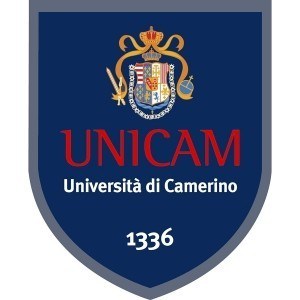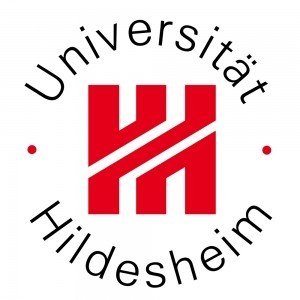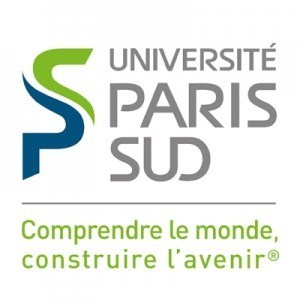Photos of university / #unioslo
Program description for the Modelling and Data Analysis at the University of Oslo:
The Master's programme in Modelling and Data Analysis at the University of Oslo is a rigorous and comprehensive degree designed to equip students with advanced skills in mathematical modelling, statistical analysis, and computational methods. This programme prepares students to address complex problems across various disciplines such as science, engineering, economics, and social sciences by developing their abilities to create, analyze, and implement models that interpret data and inform decision-making. Throughout the programme, students will gain a deep understanding of probabilistic and statistical theories, machine learning techniques, data mining, and numerical methods, enabling them to handle large and complex data sets effectively. The curriculum combines theoretical coursework with practical laboratory and project work, fostering critical thinking, problem-solving, and research skills. Students will have opportunities to collaborate on research projects, internships, and industry collaborations, providing real-world experience and networks within the data analysis community. The programme also emphasizes ethical considerations in data handling and analysis, ensuring graduates are prepared to work responsibly with sensitive information. Graduates of the Modelling and Data Analysis programme are well-equipped for careers in data science, analytics, research, or continuing their academic journey through PhD studies. The innovative teaching approach, cutting-edge research facilities, and strong emphasis on interdisciplinary collaboration make this programme an excellent choice for students passionate about applying mathematical and statistical tools to solve practical problems across diverse sectors. The University of Oslo's vibrant academic environment and its commitment to research excellence provide an inspiring setting for students to develop their expertise in modelling and data analysis, fostering lifelong skills that are highly valued in today's data-driven world.
The Master's program in Modelling and Data Analysis at the University of Oslo offers a comprehensive interdisciplinary education designed to equip students with advanced skills in mathematical modeling, statistical methods, and computational techniques. This program emphasizes the development of analytical competencies necessary to interpret complex data and create predictive models applicable in various fields such as engineering, natural sciences, social sciences, and technology. Throughout the program, students engage with a wide range of subjects including data analysis, machine learning, statistical inference, numerical methods, and optimization algorithms. The curriculum combines theoretical knowledge with practical applications, encouraging students to work on real-world problems through projects and collaborations with industry partners. The program is structured to foster critical thinking and problem-solving abilities, enabling graduates to analyze large datasets effectively, develop sophisticated models, and make data-driven decisions. Students also gain proficiency in programming languages such as R, Python, and MATLAB, which are essential tools in data analysis and modeling. The program benefits from the university's strong research environment, providing access to cutting-edge software and resources. Graduates of this Master’s program are well-prepared for careers in data science, model development, and analytical consultancy, or for further academic research at the PhD level. Overall, the programme strives to cultivate a new generation of experts who can contribute innovative solutions to the increasingly data-driven world, combining mathematical expertise with computational proficiency to solve complex scientific and societal challenges.
The Master’s degree programme in Modelling and Data Analysis at the University of Oslo requires applicants to hold a relevant bachelor’s degree or an equivalent qualification in fields such as mathematics, statistics, computer science, engineering, or related disciplines. Applicants must demonstrate solid academic standing and proficiency in quantitative methods. A strong foundation in mathematics, including calculus, linear algebra, and probability theory, is essential. Additionally, programming skills, particularly in languages such as Python, R, or MATLAB, are highly desirable since they are fundamental tools used in data analysis and modelling tasks. The programme values applicants with analytical thinking, problem-solving skills, and an interest in applying theoretical knowledge to practical problems in various fields such as science, technology, and economics.
To apply, candidates need to submit official transcripts, CV, motivated statement of motivation or personal statement outlining their interest in the programme and relevant experience, and letters of recommendation. For non-native English speakers, proof of English language proficiency through tests such as TOEFL or IELTS is required, with minimum scores specified by the university. The selection process assesses academic performance, relevant background, and motivation to pursue research and advanced studies in modelling and data analysis.
The programme’s curriculum emphasizes interdisciplinary learning, combining mathematical modelling, statistical analysis, and computational techniques. Students are expected to complete coursework in advanced statistical methods, data management, machine learning, and optimisation. Practical training is provided through projects, laboratories, and collaborations with industry or research institutions. Master's students are also required to complete a research thesis, which involves original research work under supervision, contributing to the advancement of knowledge in modelling and data analysis.
Graduates of the programme will be equipped to analyze complex data, develop mathematical models, and implement computational algorithms across various sectors such as finance, healthcare, technology, and public policy. Upon completion, students earn a Master of Science (MSc) degree from the University of Oslo, qualifying for careers in data science, analytics, research, and consultancy or for further doctoral studies. The programme offers opportunities to participate in seminars, workshops, and internships, broadening professional networks and practical experience in the field of modelling and data analysis.
The University of Oslo offers various financing options for students enrolled in the Modelling and Data Analysis program. Tuition fees for international students are generally applicable, but the university provides scholarships and grants to eligible students to support their studies financially. Norwegian and EU/EEA students typically pay no tuition fees, benefiting from the country's policies on higher education funding; however, students are responsible for living expenses, which include housing, food, and study materials. The university recommends students to plan their finances accordingly to cover these costs throughout the duration of the program.
Students can apply for numerous scholarships offered by the university, which are often based on academic merit, financial need, or a combination of both. These scholarships may cover partial or full tuition fees and sometimes include stipends for living expenses. External sources of funding such as government grants, student loans, and private sponsorships are also available, depending on the student's nationality and individual circumstances. The Norwegian State Educational Loan Fund (Lånekassen) provides financial support to students from Norway and certain other countries, assisting with tuition and living costs.
In addition, part-time work opportunities are available for students to supplement their income, with the university and local community offering employment opportunities suitable for students' schedules. These jobs may include research assistant positions, administrative roles, or tutoring services. Students are encouraged to explore internships and industry partnerships, which can sometimes provide stipends or honorariums, helping to alleviate financial burdens during their studies.
The university provides detailed guidance on budgeting, financial planning, and support services to enhance students’ ability to manage their finances effectively. International students are advised to begin their funding arrangements well before the start of the program to ensure they meet all visa and registration requirements. Overall, while the program offers accessible funding opportunities, students should prepare a comprehensive financial plan to support their academic journey, covering tuition, living expenses, books, insurance, and extracurricular activities throughout their studies.
The Master's programme in Modelling and Data Analysis at the University of Oslo is designed for students who wish to acquire advanced skills in mathematical modelling, data analysis, and computational techniques. The program provides a comprehensive curriculum that combines theoretical foundations with practical applications, preparing students for careers in research, industry, or academia. Throughout the programme, students will engage with a variety of topics, including statistical modelling, data mining, machine learning, numerical analysis, and optimization methods. The coursework emphasizes the development of analytical skills necessary to interpret complex data sets and to develop models that can predict and inform decision-making processes across diverse fields such as finance, health sciences, engineering, and environmental studies.
Students have the opportunity to work on real-world problems through project work and collaborations with industry partners, fostering skills in problem-solving, communication, and teamwork. The programme is typically delivered with a strong emphasis on hands-on exercises using programming languages like R, Python, and MATLAB, enabling students to implement and test models effectively. It also offers research opportunities through thesis work under the supervision of faculty members with expertise in various areas of modelling and data analysis.
Graduates of the programme will be equipped with a solid foundation in quantitative methods and computational techniques, making them competitive in the labour market where data-driven decision-making is increasingly essential. They may pursue career paths in data science, analytics consulting, research institutes, or continue with doctoral studies. The programme aims to foster a deep understanding of the mathematical and computational aspects of data analysis, coupled with the ability to apply these skills to solve complex problems in various domains.
The programme’s structure typically includes core courses, specialisation options, and a final thesis, spanning over two years of full-time study. Students benefit from a vibrant academic environment at the University of Oslo, with access to cutting-edge research and interdisciplinary collaboration opportunities. The university supports students through various resources, including dedicated faculty, technical labs, and academic workshops designed to enhance their learning experience and professional development.
Overall, the Master's programme in Modelling and Data Analysis is geared toward students who are passionate about mathematics, statistics, and computer science, and who aspire to utilize these skills to gain insights from data and contribute to innovative solutions in science, industry, and society.










